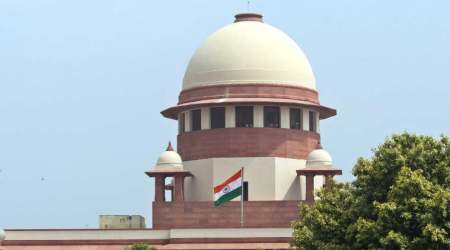 While the position of privacy as a fundamental right was uncontested till 2015, the importance of this decision cannot be emphasized enough.
While the position of privacy as a fundamental right was uncontested till 2015, the importance of this decision cannot be emphasized enough.
By Kritika Bhardwaj
A nine-judge bench of the Supreme Court delivered its verdict on status of the right to privacy today. In a landmark decision, the Supreme Court has unanimously upheld the right to privacy as a fundamental right. Importantly, the Court held that that privacy is not just an integral part of the right to life and personal liberty, but is secured by all other fundamental rights as well.
Today’s ruling emerges from a batch of petitions challenging the Aadhaar project – India’s contentious biometric identification scheme. In 2015, during one of the hearings in this case, the Central Government had contested the existence of the fundamental right to privacy. This contention was based on the argument that since two early decisions of the Court had expressly rejected incorporating privacy as a fundamental right, subsequent smaller benches could not have done so. Today’s decision explicitly overrules these two decisions – M.P. Sharma v. Satish Chandra and Kharak Singh v. State of Punjab, in so far as their observations on privacy were concerned.
It also affirms that the Court’s extensive jurisprudence on privacy, spanning over forty years, is good law. The challenge to the validity of the Aadhaar project will now be decided on the strength of today’s decision.
While the position of privacy as a fundamental right was uncontested till 2015, the importance of this decision cannot be emphasized enough. Some of the main grounds for challenging Aadhaar are its violation of physical privacy (by forcefully capturing biometrics), and its surveillance potential (by aggregation of independent data silos). By reaffirming that privacy is an inherent aspect of dignity and liberty, and consequently deeply embedded within our Constitutional scheme, this judgment will ensure a more rigorous analysis of Aadhaar’s impact on individual rights.
However, the significance of this decision goes beyond its impact on Aadhaar. At the outset, it is important to note that the judges have restrained themselves from exhaustively cataloguing the right, or any limitations to it. Privacy is often invoked in myriad circumstances, and has traditionally been tough to define. The approach of the Supreme Court had always been to develop the right on a case-by- case basis and it is heartening that the judgment acknowledges that changing time and technology can impact the right in unforeseen ways.
Another significant impact of this judgment will be on the pending petition challenging the Supreme Court’s earlier verdict in the Section 377 case. In a disappointing (to say the least) judgment in 2014, the Court had upheld the validity of Section 377 of the Indian Penal Code, resulting in re-criminalisation of sex between consenting adults of the same sex. Today’s judgment expresses strong contempt for the reasoning in this case and expressly holds that sexual orientation is a fundamental aspect of one’s identity, and is therefore closely related to dignity and privacy.
It was also noted that besides an obligation to not interfere with an individual’s privacy, the state also has a positive obligation to protect the right. In the absence of any legislation on privacy, it could be argued that such
an obligation extends to protecting individuals against discriminatory data practices of corporations and other non-state actors.
It is true that the true test of the ruling will depend on its application. It is still possible for the Court to uphold the validity of Aadhaar if it feels that the scheme is a justifiable intrusion of privacy. However, an unequivocal recognition of the importance of the right is more than just an encouraging sign. Today’s judgment acknowledges the importance of a right to privacy in the context of autonomy, dignity and liberty. It is hoped that in the face of unjustifiable intrusions, the Court will continue to uphold and enlarge this right in a meaningful manner.

